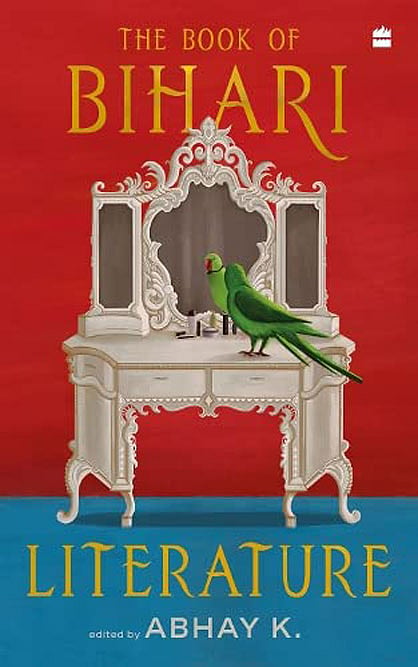Patna to Purnia

One particularly ignorant batchmate at college had a dim view of Bihar and Biharis. I was excluded from this hatemongering because I “did not sound like the others”. By which he meant, I did not sound like I “spoke Bihari”. I hope that somebody with more patience and bandwidth than me eventually explained to him that Bihar had over a dozen languages and dialects, of which at least three (Bhojpuri, Magahi and my own mother tongue, Maithili) has well over 10 million speakers. If this conversation were happening today, I would have directed him towards The Book of Bihari Literature, edited by the writer and diplomat Abhay K.
This recently released anthology is an ambitious undertaking, for it seeks to cover not just all of the aforementioned languages, but also works from ancient languages like Pali and Sanskrit. There are selections from texts that predate Christ (like the Chanakya Niti), as well as pioneering medieval texts from Vidyapati, a 14th and 15th century polymath-poet central to the development of both Maithili and Bangla literatures. Moving forward in time, Abhay K brings readers all the way up to the contemporary moment, with selections from the works of English-language Bihari writers like Amitava Kumar and Tabish Khair, who are read and appreciated across the Anglophone world.
AIming High
20 Feb 2026 - Vol 04 | Issue 59
India joins the Artificial Intelligence revolution with gusto
Together, these works bring you Bihar in all of its many moods—the fierceness of Ramdhari Singh Dinkar’s epic Hindi poem ‘Rashmirathi’, the anguish of Nagarjun’s ‘Famine and After’ (reading this triggered memories of my grand-uncle, a Maithili poet himself, reciting the original Hindi poem with tears in his eyes), the O Henry-esque flourish of Phanishwar Nath Renu’s short story ‘The Messenger’ (translated by Rakhshanda Jalil), or the small miracle that is Amitava Kumar’s ‘The Rat’s Guide’ (excerpted from his 2013 book A Matter of Rats: A Short Biography of Patna).
Apart from these, my favourite entry in this collection is the Maithili and Hindi writer Rajkamal Chaudhary’s wickedly allusive short story ‘Fish’, a humorous, dream-logic fable that both deifies and satirises the Bihari man’s fondness for rohu/rui (a kind of freshwater fish that’s immensely popular in East India, especially Bihar and Bengal).
In this story, two friends Kanhaiya and Gadadhar are courting a pair of sisters who come from a vegetarian family. Gadadhar is afraid that the loose-tongued Kanhaiya will say the wrong thing and mess up both friends’ chances. Kanhaiya proceeds to do exactly that by launching into a rhapsody about how much he loves eating rohu and rice; Gadadhar is upset at the turn of events and the next day he leaves for college without telling his friend.
Chaudhary writes, “He ate his meal all by himself—rice with the leftover fish from the previous night, and an alu-gobi gravy—and fell asleep. Kanhaiyaji had a divine dream during his afternoon sleep. He saw that he was in the midst of a deep sea, sitting on a swan-shaped boat with two beauties. Both the women were mermaids, their bodies below their waists resembled rohus!”
See how this passage expertly marries both functionalities of rohu in Kanhaiya’s life, as he is napping obliviously. There’s the ‘comfort food’ function but there’s also something deeper, more primal going on here, as is evident by the mermaid imagery.
The Book of Bihari Literature is full of deceptively light-footed passages like these, each concealing kernels of truth. For it is indeed the Bihari way to couch difficult truths within acceptable, innocuous homilies (for evidence, look at the oratory of Bihari politicians down the years). For this and for so many other reasons, readers should acquire this book post-haste.

